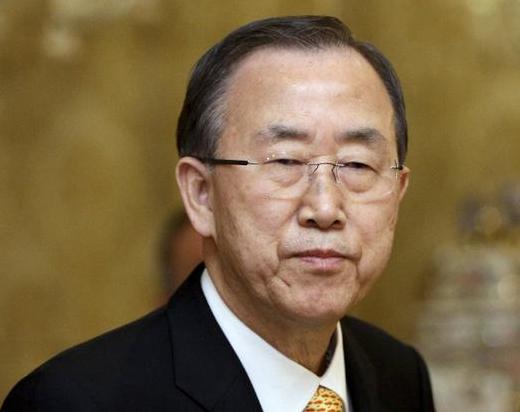In a major initiative to boost efforts in reducing carbon footprint globally, UN Secretary General Ban Ki-moon has invited leaders from government, finance, business and civil society to bring bold announcements and actions on climate change to the Summit.
In response to the call from UN Secretary General, a group of institutional investors have joined forces with the United Nations Environment Programme and its Finance Initiative (UNEP FI) to reduce carbon footprint of US$200 billion of institutional investment worldwide by the end of 2015.
The announcements include a mix of public and private financing, including pledges by donor and developing countries to an initial capitalization of the Green Climate Fund. The new financing, according to the announcements, would be available by the end of 2015, when countries will be finalizing a new universal climate agreement.
The new commitments will give a significant boost to efforts to mobilize the US$100 billion per annum by 2020 that was pledged in Copenhagen for climate financing for developing countries.
“I am very impressed by the financing mobilized at the Summit by both the public and private sector. This will serve as a catalyst in finalizing a universal and meaningful agreement at Paris on climate change in 2015,” Ban Ki-moon said.“The Summit has created a platform for new coalitions and has brought leaders from both public and private sectors across the globe to not only recognize climate risks, but to agree to work together.”
The Summit also marked a major advance in efforts by governments and businesses to set a price on greenhouse gas emissions, a step that offers investors and consumers an accurate reflection of the true cost of goods and services. At the Summit, countries and more than 1,000 companies endorsed the need for developing mechanisms that would adequately reflect the true costs relating to pollution and emissions.
The private sector announcements were made by an unprecedented coalition of financial institutions, pension funds, insurance companies, development banks and commercial banks, represented at the highest level, which had never previously acted together on climate change at such a large scale.
In a major departure from the climate negotiations and previous climate summits, the business community and civil society is playing a major role. There were 181 representatives from the business and investment community, including 90 chief executive officers. There were 52 business and investors from developing countries. In addition, there were dozens of civil society representatives.
Government, business and finance leaders say the new public and private financing commitments made at the Summit will have a multiplier effect that can spur climate financing for building low-carbon economies around the world.

“The Summit has opened the door for donors to contribute to the Green Climate Fund,” said Ban Ki-moon. “It is only a start. But we see that public investments in climate change are able to leverage private investments on a much larger scale. We need a healthy mix of both public and private finance and the Summit has played an important part in mobilizing this financing.”
Ban added, “The announcements made at the Summit will go a long way toward developing new markets—and strengthen existing markets—that will support climate-friendly economic development. I will be watching to ensure that the announcements made here today will be implemented.”
The Summit announcements for climate financing include the following commitments:
- A coalition of institutional investors has committed to expediently decarbonize US$100 billion and to measure and disclose the carbon footprint of at least US$500 billion in assets under management.
- Three major pension funds from North America and Europe announced they would accelerate their investments in low-carbon investments across asset classes up to more than $31 billion by 2020.
- Commercial banks will provide US$30 billion in new climate finance by the end of 2015 by issuing green bonds and other innovative financing initiatives.
- The national, bilateral and regional development banks of the International Development Finance Club (IDFC) announced that they are on track to increase their direct green/climate financing to $100 billion-a-year for new climate finance activities by the end of 2015.
- The insurance industry has committed to double its green investments to US$82 billion by the end of 2015 and announced it would increase the amount placed in climate smart investments to ten times the current amount, by 2020.
- Developed and developing countries have started pulling together to capitalize the Green Climate Fund (GCF), by pledging more than US$2 billion.
- The European Union announced a commitment of US$2.5 billion to be channeled to the developing countries during 2014-2015, with a focus on adaptation and mitigation as part of an overall commitment of US$18 billion in flows to developing countries for climate financing by 2020.3
These announcements form part of United Nations Secretary-General Ban Ki-moon’s call to keep global temperature increases to less than two degrees Celsius by reducing emissions, moving money, pricing pollution, strengthening resilience and mobilizing new coalitions. This is one of eight areas identified as critical and further developed during the Abu Dhabi Ascent, a two-day meeting held in the United Arab Emirates in May 2014.
